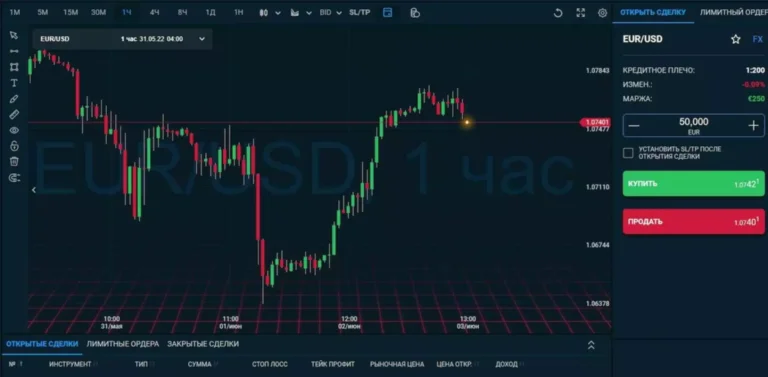Content
Ultimately, the best option is the one that meets an investor’s needs and helps them achieve their financial goals. The significance of broker-dealers in the financial landscape cannot be exaggerated, as they facilitate a multitude of services full service brokerage firm for a wide range of investors. With the presence of full-service and discount brokers alongside proprietary trading firms and market makers, each broker-dealer type serves unique functions that cater to the diverse needs of its clients. Discount broker-dealers primarily focus on executing trades for clients, offering little to no advisory services. They are known for charging lower fees and commissions than full-service broker-dealers, making them an attractive option for cost-conscious investors. At Pillar Wealth Management, we are a wealth management firm offering a range of financial, investment, and wealth management services.
Build your skills with a risk-free demo account.

Our relationships with an array of Tier 1 investment banks provides significant capacity to curate bespoke FX liquidity solutions that draw on superior access to more than twenty bank, non-bank and ECN liquidity providers. These brokers harness technological solutions and multi-account management to grow your portfolio. Choosing between a broker-dealer or an independent investment adviser depends on your objective, the size of your organisation, your budget, and the type of services you expect to receive. For example, a broker can purchase 50 shares from company ABC for $100 each and resell them in secondary markets for $101 per share and a profit of $1 per share. Note that it is an imaginary example because $1 is a significant amount, and $0.15 is a reasonably sufficient spread per share. Additionally, brokers working with wirehouses and large corporations usually receive a fixed income with https://www.xcritical.com/ a tiny fraction of their sales, around 3-5%.
Broker Dealers and Trading Commissions: Finding the Best Deals
Additionally, such firms often expect their clients to invest at least $5,000 to $10,000 just to open an account, however, many require higher account minimums. Keep in mind that the temptation of these commissions can influence the advice these firms give you. Full-service brokers will help you negotiate trades and can offer powerful, personal insights into the market. Discount brokers allow you to open an account, deposit funds, and, depending on the type of account you hold, Cryptocurrency exchange generally leave you to your own devices. It should be said that discount brokers still offer powerful research tools and reports, but they often lack customer service anywhere near the level of a full-service brokerage.
- Additionally, dealers are required by the law to inquire about their client’s financial information, investment patterns and objectives and tax status and identification to avoid unintentional participation in illegal activities.
- Nevertheless, there are several techniques you can adopt to successfully lower the amount of taxes you are obligated to pay.
- All content on this website, including dictionary, thesaurus, literature, geography, and other reference data is for informational purposes only.
- Broker-dealers are an example of those agents who trade for you in different exchanges for fees and commissions.
- Some broker-dealers are full-service firms, offering a wide range of services, while others are discount broker-dealers, offering fewer services but lower fees.
Securities and Exchange Commission (SEC)
Our goal is to help empower you with the knowledge you need to trade in the markets effectively. Now that you understand the pivotal role of broker-dealers in the trading landscape, it’s time to put your knowledge into action with TIOmarkets. Join over 170,000 traders across 170 countries who have chosen our top-rated forex broker and online trading platform for trading Forex, indices, stocks, commodities, and futures markets. Enhance your trading skills with our comprehensive educational resources and step-by-step guides. They stand ready to buy or sell securities at publicly quoted prices, which ensures that investors can buy or sell securities whenever they want. FINRA is a self-regulatory organization (SRO) that regulates member brokerage firms and exchange markets.
Coinbase Suggests a Crypto-focused Financial Regulator to Take the Role of the SEC in Overseeing Digital Assets
Probably the largest disadvantage of using these types of brokers is the price tag. Full-service brokers, like other management company types, charge for their services, and although the broker may offer a “bundle discount,” generally you will be paying more no matter the amount discounted. The phrase broker-dealer is used in U.S. securities regulation to describe stock brokerages because they are both broker and dealer. In other countries, the phrase is used to describe firms that engage in securities transactions on behalf of their clients. Open up new trading and investment opportunities for your clients in a simple and streamlined way by leveraging our end-to-end Equity and ETF CFD solutions. With access to over 35 Equity markets and extensive borrow we can help grow and diversify your product offering.

Further, prime brokers provide advanced trading services such as leverage, short-selling facilities, and other sophisticated tools to support complex trading strategies. They also assist clients with risk monitoring and regulatory oversight, ensuring that their trading activities are conducted within the bounds of relevant legislation and best practices. Additional fees and higher commission structures are typical of full-service brokers.
Trading commissions are the fees charged by a broker-dealer for executing trades on behalf of their clients. They are typically charged as a percentage of the total trade value, and can range from as low as $4.95 to as high as $50 or more per trade. Some brokers may also charge a minimum commission fee, which means that even if your trade is small, you still have to pay a set amount. It is important to note that trading commissions can add up quickly, so it is important to choose a broker that offers competitive rates.
From self-directed traders to hands-off investors, the team at StoneX can help you achieve nearly any market-related objective. It remains debatable whether the electronic marketplace has made the process of price discovery more efficient, but it has increased the variety of brokerage options. No matter your resources or trading style, various types of brokers stand ready to assist you. The transition of the financial markets to the online space has brought many changes to the futures industry. From breaking down the traditional barriers of entry to placing an added impetus on technology, the digital marketplace has created many advantages and disadvantages for retail traders. Full-service brokers usually charge a fee equal to a percentage of the value of the assets in the client’s account.
First, broker-dealers play an important role in the financial markets because these firms provide the infrastructure that makes stock trading possible. If you want to buy stock, you must open a brokerage account through a brokerage firm. A dealer, on the other hand, makes trades on behalf of its own account or possibly for the U.S. Clients of full-service brokerages appreciated the convenience of having a personal broker handle all their investment needs. These platforms are loaded with fundamental research, order execution, and technical analysis tools.
No, you don’t directly need a broker-dealer—or a human stockbroker—to purchase stocks, but in most cases, you will need to work with a brokerage firm, which may, in turn, use a broker-dealer for transactions. Some firms provide strategic investment advice and will execute trades on your behalf. Others just offer a platform to buy and sell stocks yourself or through an automated robo-advisor. Some of these firms also offer online tools and research designed to help do-it-yourself investors generate ideas and research securities they may be interested in purchasing. The limited service offering provided by discount brokers is significantly less expensive than the cost of working with a full-service broker. Still, it’s wise to clarify any misconceptions about discount brokers before hiring one.
This means that the broker-dealer is buying and selling securities from its own inventory. When you buy from or sell to a broker-dealer acting as a dealer, you are trading with the firm’s inventory. When investing, it’s critical to understand that a broker executes orders on behalf of clients and can be either a full-service broker or a discount broker that only makes trades. Some of them, also known as primary dealers, also facilitate trades on behalf of the Federal Reserve to help implement monetary policy. A broker is an individual or financial services company that enables the trading of securities for other individuals. A dealer is an individual or financial services company that enables the trading of securities for themselves.
These broker-dealers specialize in handling large-volume transactions and offering highly specialized services tailored to the unique needs of institutional investors. A broker-dealer, a regulatory designation for what is commonly known as a brokerage, represents a significant level of expertise in the financial market. In addition to investment advice, a full-service broker provides financial planning services, such as retirement and estate planning.
These include providing investment advice to customers, supplying liquidity through market-making activities, facilitating trading activities, publishing investment research, and raising capital for companies. Broker-dealers range in size from small independent boutiques to large subsidiaries of giant commercial and investment banks. Broker-dealer firms exist in financial markets to assist investors with executing trades and making financial decisions. Broker-dealers may serve as principals or agents to execute trades on behalf of customers. In addition to trading commissions, broker-dealers may charge additional fees for services such as account maintenance, research, and data feeds. It is important to consider these fees and evaluate whether the services offered justify the additional cost.
Broker-dealers handle everything from the initial listing of pre-IPO shares to the final settlement of transactions. They ensure that all parties meet the necessary criteria for buying and selling and that the shares are correctly listed, priced and transferred. One of their key responsibilities is to conduct thorough due diligence, verifying the shares’ legitimacy and the investors’ accreditation while also adhering to the regulatory framework that governs pre-IPO transactions. The financial industry defines a broker-dealer as an individual, a company or other institution that is engaged in securities trading on behalf of its customers or for its own account.
Our extensive Prime Broker relationships with Tier 1 investment banks gives us the capacity to curate bespoke liquidity solutions. The primary type of commission at all broker-dealers is the difference between supply and demand, expressed in the absolute value of the price of a particular asset. This article will shed light on what a broker-dealer is and what functions it performs. You will also learn what types of broker-dealers exist in the market today and their peculiarities. PillarWM website uses privacy policy and terms of service to make your online experience easier and better.
